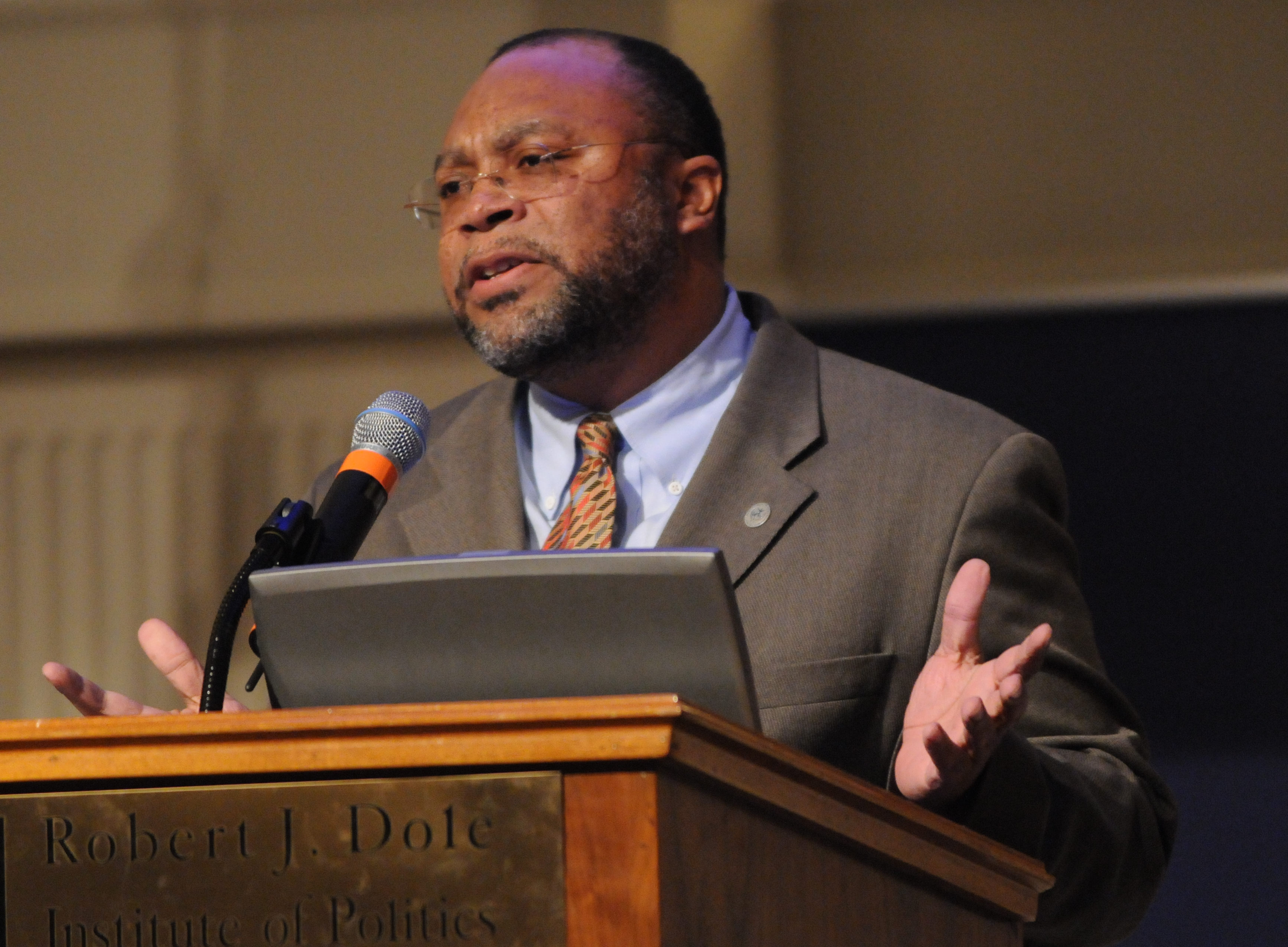Bremby defends coal-plant decision

Roderick Bremby, secretary of the Kansas Department of Health and Environment, gives a lecture for those gathered at the Dole Institute of Politics Wednesday, March, 5, 2008.
It was finally a chance to clear the air.
Since October 2007, Roderick Bremby, secretary of the Kansas Department of Health and Environment, has been under a cloud of criticism for his denial of two proposed 700-megawatt coal-fired power plants.
He denied the plant permits because the project’s annual emission of 11 million tons of carbon dioxide would have a negative effect on the environment, he said.
During a Wednesday lecture at Kansas University’s Dole Institute of Politics, he touched on several factors in the decision.
Bremby, who has a master’s degree in public administration, first described how the spheres of public policy and administration aren’t designed to intersect. But often they do, as was the case with the coal-plant decision.
Just hours earlier Wednesday, the Kansas House had approved another coal plant bill, but a veto is still expected from Gov. Kathleen Sebelius.
Bremby said it’s his role as KDHE leader to determine what is best for Kansans’ health.
He also used the lecture as a time to “clear the air” on facts he thinks have been misrepresented to the public about the health department or about the coal-fired plants.
In his October decision to deny the coal plants, Bremby said he wasn’t asserting that climate change exists. He even told the audience not to take his word on climate change, but to look to scientists.
“That really doesn’t matter as a bureaucrat. What I said is that it would be irresponsible to ignore emerging information about the contribution of carbon dioxide and other greenhouse gases to climate change and the potential harm to our environment and health if we do nothing,” he said.
He spoke to a crowd of more than 150 people as part of a University Lecture Series about global warming. The series is sponsored by the KU Honors Program along with the Biodiversity Institute, the Hall Center for Humanities and the Spencer Museum of Art.
In the audience was Karl Brooks, a KU environmental law professor, and about one-third of his class.
“It’s always helpful to hear a decision-maker explain the reasons for a decision,” he said. “Sometimes it just comes across as a government agency decides a certain thing and you don’t really understand the process. I congratulate Bremby for taking the time to explain all the factors that went into the decision.”
“Climate policy is something that we’re all going to have to wrestle with,” Bremby said.
He said a single state agency can’t determine the fate of Kansas.
“That is some of what makes this issue so complex,” he said. “It touches all of us. It will impact all of us. It needs all of us to engage in the conversation. And at the end of the day, there will be a conversation.”







